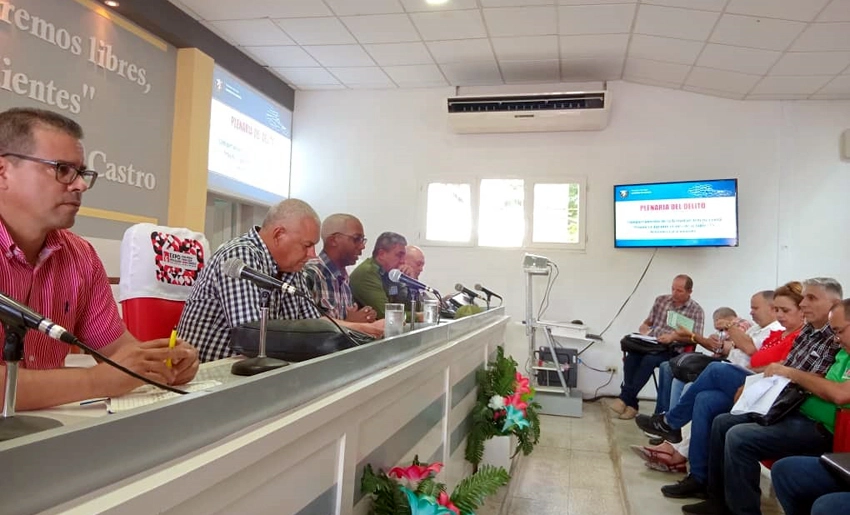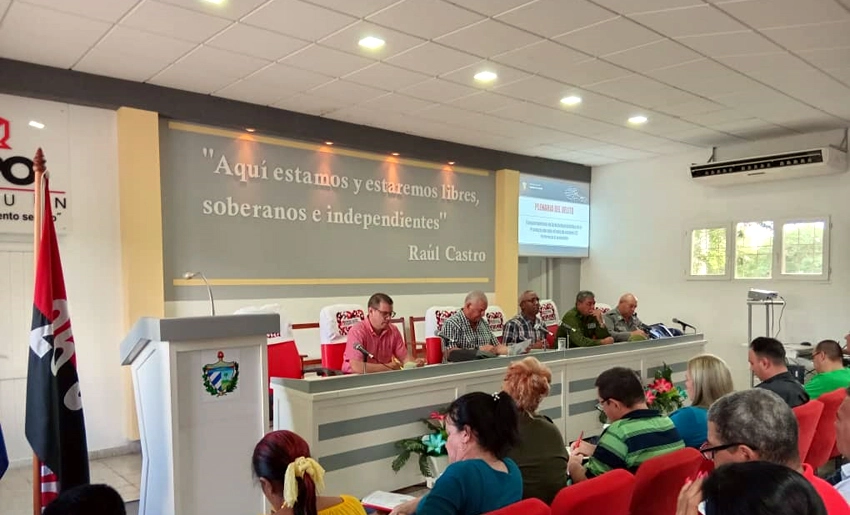The recent assessment of the main crime incidents in the province of Holguin, led by Joel Queipo Ruíz, First Secretary of the Communist Party of Cuba, and Governor Manuel Hernández Aguilera. It demonstrates a process of rigorous analysis and mobilization of agencies and society to confront this phenomenon.
While it is encouraging that, overall, the figure of 17,204 criminal activities for the year shows a downward trend since July and is lower than the same period last year. The analysis for the month of October reveals specific trends that require a closer look and, above all, concrete actions. The most affected Popular Councils total 19, including San Andrés and La Caridad in the municipality of Rafael Freyre.
Also the fact that burglaries, theft, and illegal slaughter of livestock account for 86% of the 1,194 reports this month. It is a clear sign that the root causes must be found in objective socioeconomic pressures.
These types of crime, which directly affect the population’s assets and state resources, do not arise in a vacuum. Their increase points to the persistence of economic hardships that, for a segment of society, find outlets in illicit behavior.
A careful analysis identifies several factors contributing to this scenario:
The vulnerability of targets
Meanwhile the increase in burglaries in unoccupied homes and state entities (with 50 incidents in October alone) indicates a clear weakness in protection and control mechanisms. This is not only a problem of citizen security. But also of discipline and internal organization in workplaces and of collective surveillance measures in communities.
The Effectiveness of the Measures
So the fact that the incidence of crime has been contained in nine municipalities. Such as Mayari, demonstrates that when localized strategies are applied and combat is prioritized. Positive results are achieved. However, the fact that municipalities such as Holguin and Moa continue to show the highest rates suggests that these measures should be reevaluated and strengthened in those areas. Adapting them to their specific circumstances.
Challenges Exist in the Domestic Economy
The explicit call by representatives of the Ministry of the Interior (Minint) and the political leadership to address crimes against the economy in state institutions is a high alert. It reveals the existence of loopholes through which indiscipline, corruption, and negligence infiltrate. Facilitating theft and misappropriation of resources.
Futhermore the requirement that managers constantly update their response plans is a recognition that criminal tactics evolve. Also institutional defenses must do so at the same speed.

Also the meeting, with the participation of all sectors of society and the economy, is in itself the right path. The work of oversight and surveillance bodies is not enough. A response that evaluates both causes and solutions is required.
Moreover the battle against these criminal manifestations must be won on several fronts: with greater effectiveness in the protection of state and personal property. With the strengthening of oversight mechanisms. And crucially, with continued attention to the social problems underlying these behaviors.
The call has been made. The provincial leadership has put the issue on the table with transparency. Now, the response must be coordinated, energetic, and sustained. With each agency, institution, and each citizen in their community assuming their leading role in defending order and the heritage of the Revolution.
By: Daimy Peña Guillén
- Installation of Photovoltaic Systems in Rural Communities in Holguin - 19 de January de 2026
- 39th City Salon Opens in Holguin - 19 de January de 2026
- Habanos Festival Among Cuba’s Most Important Tourism Events - 19 de January de 2026

